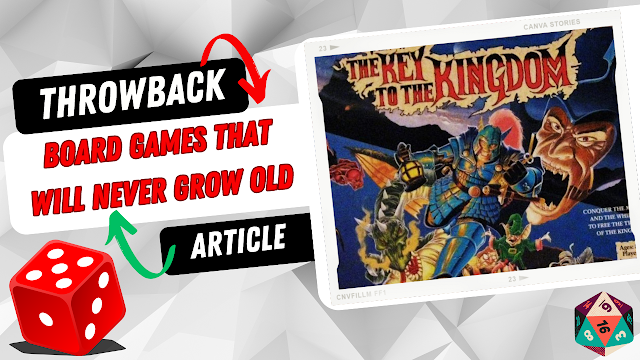Automated Intelligence is undoubtedly one of the 21st-century hallmarks of the digital world. AI has become a holy grail for many industries, particularly in the tech space. One of the pertinent industries that has felt the impact of algorithmic systems on their functionalities is the gaming industry. In the virtual realm, where digital playing meets AI, Norwegian players seeking the thrill of gameplay and secure transactions will find a haven courtesy of this awesome combination.
With brilliant platforms such as Mr. Bet, or as the Norwegians would refer to it, Mr. Bet Online Casino, players can expect to find cognitive computing’s footprints in many facets of casino gaming operations. From shaping gameplay experiences to curating great graphics, explore how AI has impacted gaming progress over time.
Elevating Realism In Gameplay
So much of modern-day gameplay is pegged on the immersion aspect for players. This has a lot to do with how the graphics departments for different software providers apply their craft. Experienced people in the industry will let you know that crafting a digital play that resonates with real-life experiences for players is no mean fete. That’s where AI has proudly come in and infused its magic through a series of actions:
Employing dynamic visual effects: By infusing dynamic smart automation techniques, players have been able to craft life-like scenes that are designed to mirror the player’s behaviours.
Creative character animations: Smart automation has made it possible to breathe life into cartoonish depictions of in-game characters, bringing a true-to-life visual aspect to games.
Immersive gaming environments: Immersive game states transport players into fictional realms and make them feel like they are the fictional characters they are playing. Robotic intelligence systems have infused authenticity into gameplay sequences, therefore enhancing the overall gaming experience.
Adaptive Challenges: Thanks to Artificial Intelligence, the gameplay experiences of different players have been curated to mirror their performances. So, if you’re doing well in a game, the game will then be adjusted to a slightly tougher state, and if the game is challenging for you, then it is accordingly adjusted to be easier.
AI-Infused NPCs
Through algorithmic systems, Non-Player characters (NPCs) have been infused with new breaths of life. Previously, these characters were stoic and rigid and hardly had any meaningful impact on the game state. With automated intelligence’s bright spark being shone on NPCs, these characters have been made to mirror player actions. If you’re looking for gameplay that blurs the division between realism and fiction, then the new-look NPCs make that concept work.
Adaptive Soundtracks and Sound Effects
Just as graphics and visuals are essential to draw out the immersive effect of gameplay, the impact of a great soundtrack and sound effects cannot be understated. With machine learning and cognitive computing, the gameplay state is analyzed, and then the game state will demand that appropriate sound bytes and music are applied to the gaming process. Such customized elements go a long way toward drawing more players to the game.
Improved Game Mechanics
AI has changed the core mechanics of many games for the better. For instance, in games where your foes were previously configured to be predictable, the improvement of game mechanics has brought forth more formidable opponents. The AI-driven enemies now react based on your gameplay motions. The emergent nature of gameplay goes beyond the battle lines. Most of today’s gaming features surprise elements rather than predictive ones, helping spice up lots of dynamic universes.
Customized Gaming Experiences
Cognitive algorithms will study players’ playing patterns over time and curate gaming experiences based on these patterns. If you’re a combat-loving player, for instance, through the collection of your data over time, you’ll encounter more conquests related to fighting. Game developers can also develop other aspects, like rewards, to suit your taste. Subsequent challenges and rewards will ultimately reflect what you love.
The customization of players’ gaming experiences will also extend to storytelling. Based on your personal choices, AI-based systems have found ways to tap into your emotions and psyche to enhance your gameplay experience. For instance, if you want to feel the urgency, then the storyline will reflect the urgency. If it is fear they wish to portray, then a storyline will be crafted along the lines of a horror movie.
Predicting Outcomes
Gaming developers will particularly be delighted with the predictive analysis nature of algorithmic systems. By tapping into the forecast trends associated with these games, the developers can learn what interests the players have, along with the popular in-game features in various games. The smart automation move helps developers know the specifics of where their game-developing budgets should be pointed. While this will ultimately enhance player experiences, it will also allow developers to retain more players.
The Potential for AI in Modern Games Is Huge
The integration of AI in gaming has hugely changed the digital gaming landscape, mostly for the better. From AI-infused NPCs to predicting outcomes for players, there remains hope that smart automation is just getting started. As the years roll on, AI is expected to turn more mundane experiences into better playing experiences.





No comments:
Post a Comment
Like what you see in the Games Freezer?
Why not tell us what you think with a few well-chosen comments? :)